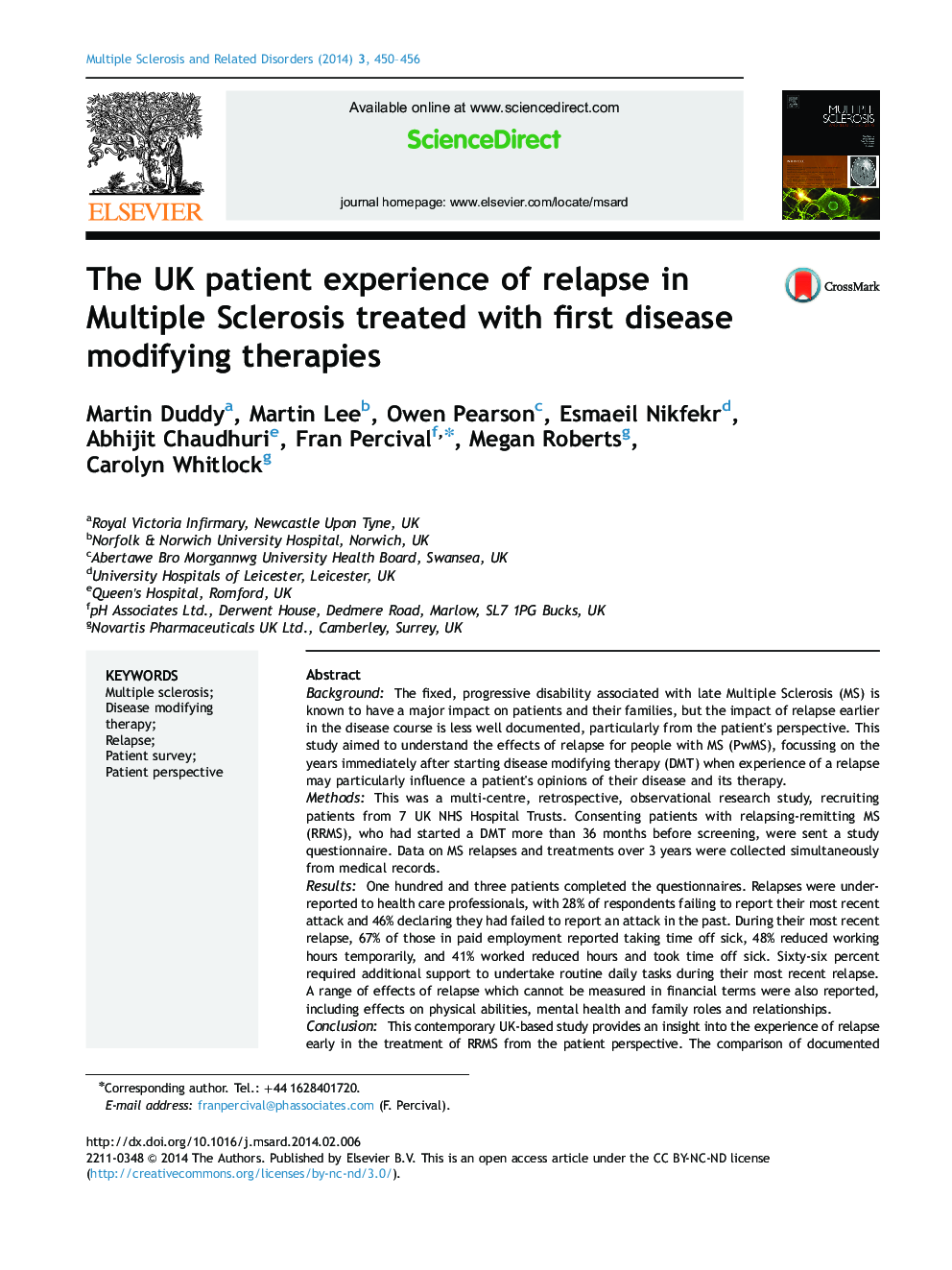| Article ID | Journal | Published Year | Pages | File Type |
|---|---|---|---|---|
| 5912237 | Multiple Sclerosis and Related Disorders | 2014 | 7 Pages |
â¢This study presents patient perspectives on the impact of relapse early in MS therapy.â¢Patients often do not report relapses to healthcare professionals.â¢Relapse affects patients׳ finances and ability to work and undertake routine daily tasks.â¢Despite relapse, patient persistence with disease modifying therapy is good.â¢Reporting and documentation of relapses need improvement if relapse reduction is to remain a key goal of treatment.
BackgroundThe fixed, progressive disability associated with late Multiple Sclerosis (MS) is known to have a major impact on patients and their families, but the impact of relapse earlier in the disease course is less well documented, particularly from the patient׳s perspective. This study aimed to understand the effects of relapse for people with MS (PwMS), focussing on the years immediately after starting disease modifying therapy (DMT) when experience of a relapse may particularly influence a patient׳s opinions of their disease and its therapy.MethodsThis was a multi-centre, retrospective, observational research study, recruiting patients from 7 UK NHS Hospital Trusts. Consenting patients with relapsing-remitting MS (RRMS), who had started a DMT more than 36 months before screening, were sent a study questionnaire. Data on MS relapses and treatments over 3 years were collected simultaneously from medical records.ResultsOne hundred and three patients completed the questionnaires. Relapses were under-reported to health care professionals, with 28% of respondents failing to report their most recent attack and 46% declaring they had failed to report an attack in the past. During their most recent relapse, 67% of those in paid employment reported taking time off sick, 48% reduced working hours temporarily, and 41% worked reduced hours and took time off sick. Sixty-six percent required additional support to undertake routine daily tasks during their most recent relapse. A range of effects of relapse which cannot be measured in financial terms were also reported, including effects on physical abilities, mental health and family roles and relationships.ConclusionThis contemporary UK-based study provides an insight into the experience of relapse early in the treatment of RRMS from the patient perspective. The comparison of documented patient reported relapses reveals some deficiencies in the recording of relapses which is important to address in view of the reported impact of individual relapses, and emphasises relapse reduction as a worthy treatment aim.
